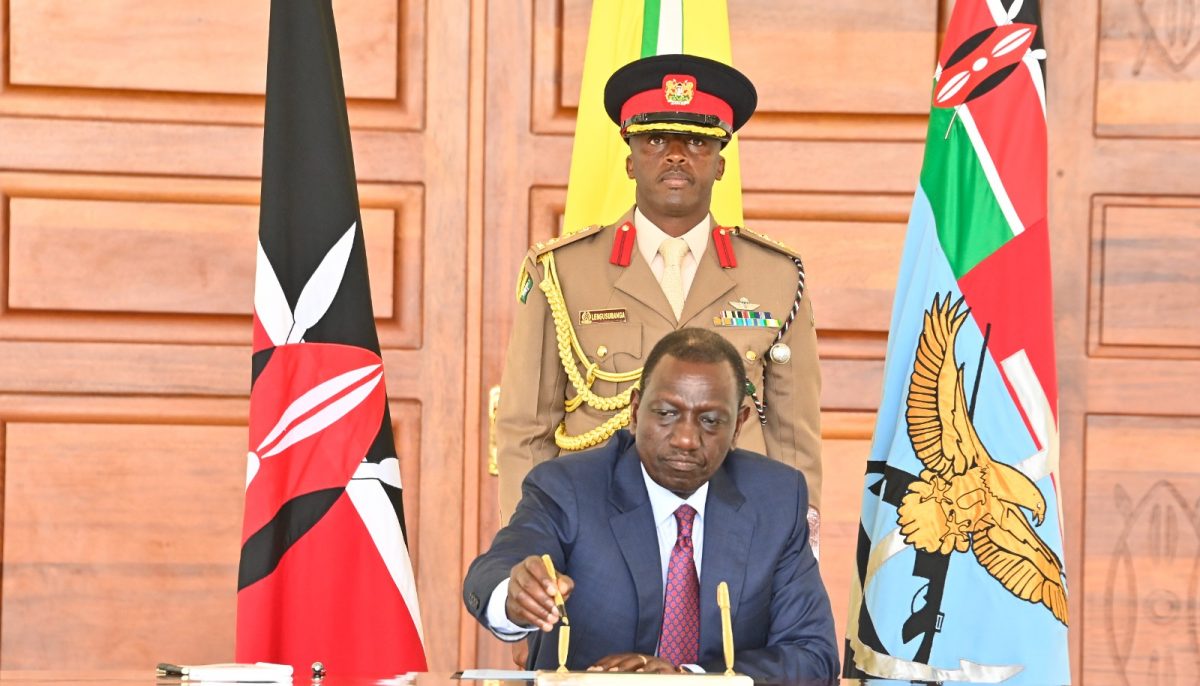Be wary of talk on ending presidential term limit
By Hansen Owilla, May 15, 2024Restricting political power through the presidential term limit is one of the master strokes in our constitution. It protects our democracy from dancers who want to entertain us for far too long – with poor dance moves.
You see, democracies all over the world have shown us that winners are not always winning based on substantive ideas. And rarely do winners ever deliver on their promises to even enjoy comfortable victories in their subsequent terms after the first.
However, electoral justice systems in most democracies in Africa are so weak that the cliche you cannot beat a sitting African president has become the norm, like the presence of midusa the cat in Gabriel Oguda’s satirical articles.
Since the current regime ascended to power, we have had overzealous leaders come out to tease the public with talk about ending term limits. The latest is Nandi Senator Samson Cherargei. These leaders need to understand that controling power through term limits, though rarely discussed, is critical in the context of promoting good governance and better services for citizens.
Studies have shown that limiting power through constitutional term limits is not just critical for promoting good governance, but also for inculcating a culture of accountability and entrenching electoral justice. A sitting senator ought to focus more on accountability, so that the public-interest policies delivered by this government are entrenched in our democracy and the practices continue thereafter.
Moreover, limiting power through the constitution is the only recourse for eliminating rogue regimes, and, most importantly, is an avenue for peaceful transfer of power.
Whereas Kenya is a maturing democracy with a robust media, albeit in the hands of a few owners, abrogation of the term limit cannot be ruled out, especially when the issue keeps cropping up over and over again.
Populist and pluralist strands of democracy have grown in Kenya, and the main reason Kenyans must be wary of the political class is the ethnic mobilisation that characterises politics and public interest discourses. These leaders don’t want us to talk about the punitive tax regime, the high cost of living, the corruption in high places or even how the regime is delivering on the promises it made, NO. For them, it is increasingly about populism and numbers and winning the next elections.
History has taught us that in most fledgling democracies, leaders in power take advantage of weak electoral systems, the immense powers that come with their offices and the ethnicisation of political discourse and contestations to their advantage. Simply put, the top political class, especially incumbent presidential candidates, have perfected the art of appropriating ethnicity, religion, and state machinery to circumvent constitutional provisions to either win power or by all means stay in power.
Often, they use what Noam Chomsky calls ideological state apparatus and state machinery to control succession in the event they cannot stay in power. A few have succeeded in changing the constitutional term limits and continuing to plunder their countries’ resources with reckless abandon.
Interestingly, mass consciousness in several African countries has seen strongmen who thought they were taller than life come down crushing. In West Africa, for example, the people are losing or have lost hope in democracy because of leaders who want to hang on forever. Mali, Burkina Faso, Niger and Guinea are leading this new wave of consciousness,
In Kenya, we already have a tradition of peaceful transfer of power that works. If conversations around term limits gain traction, they will be politicised, we will lose the bigger picture of their philosophical underpinnings and vote along ethnic and belonging lines for the side that commands the popular leaders from the big ethnic blocs.
Hansen Owilla is a Research Associate and Lecturer at Aga Khan University’s Graduate School of Media and Communications.
More Articles

